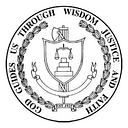
Part Time Library Page
City of Lincoln Park
Part-time
On-site
Lincoln Park, Michigan, United States
GENERAL STATEMENT OF DUTIES:
To perform general library work to assist the Library as needed.
SUPERVISION RECEIVED:
Work is performed under the supervision of the Library Director or their
designee.
TYPICAL EXAMPLES OF WORK:
(THESE EXAMPLES DO NOT INCLUDE ALL OF THE TASKS WHICH AN EMPLOYEE MAY BE EXPECTED TO PERFORM)
- Daily Circulation Desk duties
- Assist patrons as needed
- Assess and clean scratched DVDs and CDs
- Sorts, shelves, and files various library materials accurately according to library
- classification systems (alphabetic, numeric, and alphanumeric)
- Reads shelves for accuracy and re-shelves misplaced items;
- Shelf maintenance of all library collections
- Assist with Library Program preparation when needed
- Assist with book sale preparation when needed
- Communicate with patrons in person or by phone
- Opening and closing duties
- Other duties as assigned
REQUIRED KNOWLEDGE, SKILLS AND ABILITIES:
- Graduation from an accredited high school or GED
- Ability to learn designated functions of the library computer system to perform assigned tasks;
- Ability to sort and file alphabetically and numerically;
- Ability to communicate accurately, clearly and concisely in written, verbal and electronic formats
- Ability to follow written and oral instructions
- Ability to deal with multiple unexpected tasks and patrons simultaneously
- Fluency in English and Spanish preferred
- Tact in dealing with the public and fellow employees.
- Strong customer service skills. Ability to communicate by telephone and in person in a courteous and pleasant manner, especially when dealing with an angry or frustrated caller.
ABILITY REQUIREMENTS:
Degree of physical demands (strength) usually associated with the essential functions of this
classification:
- Exerting up to 20 pounds of force occasionally, and/or up to 10 pounds of force frequently, and a negligible amount of force constantly to move objects. Physical demand requirements are in excess of those for sedentary work. Walking or standing is required to a significant degree.
Type of physical demands usually associated with this classification:
- Reaching, handling, fingering, and/or feeling.
- Squatting: lowering the body by bending leg.
- Stooping: bending body downward and forward by bending spine at the waist.
- Hearing - Perceiving nature of sounds by ear.
- Seeing: The ability to perceive the nature of objects by the eye. The important aspects of vision are:
- Acuity, far - Clarity of vision at 20 feet or more.
- Acuity, near - Clarity of vision at 20 inches or less.
- Depth Perception - Three dimensional vision. Ability to judge distance and space relationships so as to see objects where and as they actually are.
- Field of Vision - Area that can be seen up and down or to right or left while eyes are fixed on a given point.
- Accommodation - Adjustment of lens of eye to bring an object into sharp focus. This item is especially important when doing near-point work at varying distances from eye.
- Color Vision - Ability to identify and distinguish colors.
- Environmental Conditions (Physical Surrounding) usually associated with this classification:
The Worker is subject to inside environmental conditions. Protection from weather conditions but not necessarily from temperature changes.